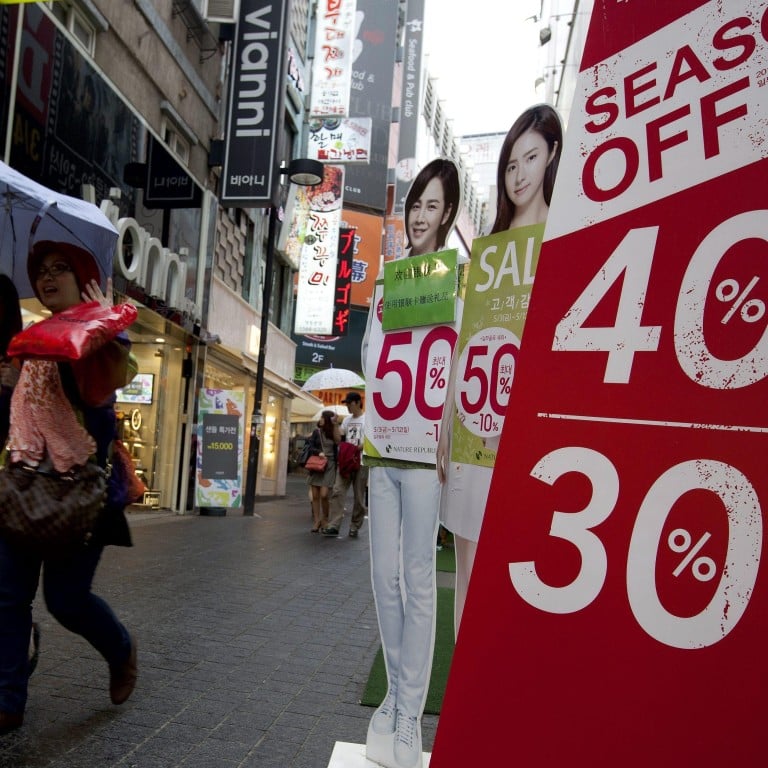
Cheap Chinese goods have become a double-edged sword for South Korea’s economy
- China surpassed the United States to become the top direct purchase choice for South Korean online shoppers
- Some experts warned the shopping trend may deal a blow to South Korean manufacturers, who lag behind Chinese rivals in terms of cost competitiveness
China has been dumping goods on global markets to make its way out of weakened domestic consumer demand in the middle of an economic slump.
Long-delayed China-Japan-South Korea summit needed ‘as soon as possible’
On Friday, the Incheon International Airport Corp., said more than 98,500 tons of foreign-made goods were transported by air from the airport in 2023, up 43.1 per cent from 2022.
Of the goods, 99.6 per cent were originally shipped from China. North America accounted for 47 per cent of the final destinations, and Europe made up another 31 per cent.
“Such logistical importance of [South] Korea is a plus factor, especially considering China’s economic slowdown is likely to go for next couple of years and that Chinese manufacturers are likely to export more cheap goods,” Lee Hun-so0, an air freight logistics expert and professor at Korea Aerospace University, said.
“Although not intended, China’s export of low-priced items is certainly boosting [South] Korea’s logistics industry,” the professor added.
Apart from transshipments, Chinese online shopping platforms, like AliExpress and Temu, have been making rapid inroads into South Korea with a wide range of items that are offered cheaper than Korea-made goods. This includes a wide range of items, some popular ones being apparel, kitchenware, toys, electronic devices, sports equipment and construction tools.
Seoul probes data practices of Chinese e-commerce platforms AliExpress, Temu
The number of AliExpress users in South Korea surged to 8.18 million in February from 3.5 million a year earlier.
Regarding Temu, it only advanced to South Korea in July 2023, about five years after AliExpress did so. Nevertheless, Temu managed to attract more than 5 million in the first year of doing business in South Korea.
Out of the total 6.75 trillion won (US$5 billion) spent by South Korean shoppers on overseas direct purchases, China accounted for 3.28 trillion won, or about 48 per cent, in 2023.
The Korea National Council of Consumer Organisation, a Seoul-based advocacy group for consumers, assessed China’s “export of deflation” has a positive aspect for budget-conscious South Korean households in the era of high inflation.
SMEs may shut down operations and go bankrupt in the worst case, as the door is now open wider for more cheap Chinese goods to come into [South] Korea
While many South Koreans favour these Chinese online shopping platforms in the middle of the high cost of living, some experts warned that the shopping trend may deal a blow to South Korean manufacturers, as many are small and medium-sized enterprises (SMEs) and lag behind Chinese rivals in terms of cost competitiveness.
“SMEs may shut down operations and go bankrupt in the worst case, as the door is now open wider for more cheap Chinese goods to come into [South] Korea,” Jeong Eun-ae, a South Korea Small Business Institute researcher, said.
Dankook University business administration professor Jung Yeon-sung viewed that China may “exploit its leverage in [South] Korea’s online shopping market to take economic retaliation,” as witnessed in China’s sharp response to a US THAAD missile shield being deployed in Korea in 2017.


